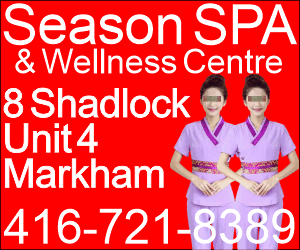D
Daven Wu
Guest
Contrast therapy, head-to-toe massage and neuroaesthetic interior design form the cornerstones of Hideaway’s holistic ethos. The Singapore-based spa opened up a new bathhouse space late last year (2024) containing infrared saunas by Clearlight and custom-built cold plunge tubs.
While the infrared technology penetrates deeper than conventional saunas to promote cellular repair and detoxification, the cold plunges (which can be set to a brave 4°C, moderate 8°C, or gentler 10°C) offer their own science-backed benefits, from reducing inflammation to boosting immunity. When used in conjunction, the shifts in temperature are said to activate the parasympathetic nervous system, said to improve sleep and reduce anxiety.

(Image credit: Photography by Hosanna Swee)
These contrast therapies can be enjoyed solo or shared, with four semi-private pods accommodating singles or pairs. There is also a private suite hosting up to four guests. This flexibility speaks to both introverted wellness seekers looking for a solo moment of self-reflection and those who prefer to engage in the social side of bathhouse culture. Massages take place in one of eight mood-lit treatment rooms, provide a deeper therapeutic counterpoint to the thermal extremes, while the tea lounge offers a space for contemplative recovery.
The spa’s location inside New Bahru, a buzzy new lifestyle destination in the River Valley occupying what was once a mid-century high school, provides an intriguing architectural narrative. This is complemented by interior and spatial from local studio Parable, which also count the likes of Hermès among its roster of clients. Founding partner Ken Yuktasevi describes the vision for Hideaway as a ‘meditation on humane luxury’. Here, original glass blocks and handcrafted ceramics create an atmosphere that manages to feel both heritage-conscious and distinctly contemporary. Fabric screens diffuse natural light through the reception area, while terracotta textures and imperfect moulded surfaces add tactile warmth to the industrial bones of the former school building.

(Image credit: Photography by Hosanna Swee)
‘What makes Hideaway unique is its dual focus on massage and bathhouse,’ adds its founder, Grant Wee. ‘My favourite wellness treatment combines both, starting with hot and cold therapy and ending with a massage. Also, the design really reminds me of my old high school classrooms with their glass blocks.’
The sound playing throughout Hideaway deserves special mention, too. In place of ambient music are tracks by Wee’s favourite bands and artists, including Frank Ocean and Cigarettes After Sex, creating an unexpected – yet equally relaxing – sonic landscape. This curated approach extends to Hideaway's deftly curated retail collection, developed with local artisans, including a signature scent by Postcard, scalp serum by Jing Botanics, and handmade bath products from Savan Baths.

(Image credit: Photography by Hosanna Swee)
In an era where wellness architecture increasingly recognises the impact of environmental design on mental health, Hideaway’s attention to spatial psychology is noteworthy. After all, the most successful modern wellness spaces – some recently explored by Wallpaper* contributing editor, Emma O’Kelly – understand that architecture itself can be a healing tool. Hideaway exemplifies this principle through its use of layered screens, materials, mood lighting, and texture to create what Parable calls ‘moments that were intentionally framed’ – creating an experience where disconnection feels less like an effort and more like a welcome surrender.
Receive our daily digest of inspiration, escapism and design stories from around the world direct to your inbox.
‘A journey of understanding how colour, object, texture, and volume create a tangible part of an oasis for urban well-being formed our neuroaesthetic design philosophy for Hideaway,’ continues Parable’s Ken Yuktasevi. ‘Weaving past and future philosophies of wellbeing into a warm, gorgeous, and present moment for guests, the space is designed to make complete sense for those who are looking for the ultimate rejuvenation.’

(Image credit: Courtesy of Hideaway Singapore)
That Hideaway happens to be in a converted school feels particularly fitting, considering its erudite and contemplative approach. But goes without saying that this time around, the curriculum is decidedly less tedious and considerably more restorative.
hideaway.sg
TOPICS
Singapore
While the infrared technology penetrates deeper than conventional saunas to promote cellular repair and detoxification, the cold plunges (which can be set to a brave 4°C, moderate 8°C, or gentler 10°C) offer their own science-backed benefits, from reducing inflammation to boosting immunity. When used in conjunction, the shifts in temperature are said to activate the parasympathetic nervous system, said to improve sleep and reduce anxiety.
Contrast therapy meets neuroaesthetic design at the Hideaway spa and bathhouse in Singapore

(Image credit: Photography by Hosanna Swee)
These contrast therapies can be enjoyed solo or shared, with four semi-private pods accommodating singles or pairs. There is also a private suite hosting up to four guests. This flexibility speaks to both introverted wellness seekers looking for a solo moment of self-reflection and those who prefer to engage in the social side of bathhouse culture. Massages take place in one of eight mood-lit treatment rooms, provide a deeper therapeutic counterpoint to the thermal extremes, while the tea lounge offers a space for contemplative recovery.
The spa’s location inside New Bahru, a buzzy new lifestyle destination in the River Valley occupying what was once a mid-century high school, provides an intriguing architectural narrative. This is complemented by interior and spatial from local studio Parable, which also count the likes of Hermès among its roster of clients. Founding partner Ken Yuktasevi describes the vision for Hideaway as a ‘meditation on humane luxury’. Here, original glass blocks and handcrafted ceramics create an atmosphere that manages to feel both heritage-conscious and distinctly contemporary. Fabric screens diffuse natural light through the reception area, while terracotta textures and imperfect moulded surfaces add tactile warmth to the industrial bones of the former school building.

(Image credit: Photography by Hosanna Swee)
‘What makes Hideaway unique is its dual focus on massage and bathhouse,’ adds its founder, Grant Wee. ‘My favourite wellness treatment combines both, starting with hot and cold therapy and ending with a massage. Also, the design really reminds me of my old high school classrooms with their glass blocks.’
The sound playing throughout Hideaway deserves special mention, too. In place of ambient music are tracks by Wee’s favourite bands and artists, including Frank Ocean and Cigarettes After Sex, creating an unexpected – yet equally relaxing – sonic landscape. This curated approach extends to Hideaway's deftly curated retail collection, developed with local artisans, including a signature scent by Postcard, scalp serum by Jing Botanics, and handmade bath products from Savan Baths.

(Image credit: Photography by Hosanna Swee)
In an era where wellness architecture increasingly recognises the impact of environmental design on mental health, Hideaway’s attention to spatial psychology is noteworthy. After all, the most successful modern wellness spaces – some recently explored by Wallpaper* contributing editor, Emma O’Kelly – understand that architecture itself can be a healing tool. Hideaway exemplifies this principle through its use of layered screens, materials, mood lighting, and texture to create what Parable calls ‘moments that were intentionally framed’ – creating an experience where disconnection feels less like an effort and more like a welcome surrender.
Receive our daily digest of inspiration, escapism and design stories from around the world direct to your inbox.
‘A journey of understanding how colour, object, texture, and volume create a tangible part of an oasis for urban well-being formed our neuroaesthetic design philosophy for Hideaway,’ continues Parable’s Ken Yuktasevi. ‘Weaving past and future philosophies of wellbeing into a warm, gorgeous, and present moment for guests, the space is designed to make complete sense for those who are looking for the ultimate rejuvenation.’

(Image credit: Courtesy of Hideaway Singapore)
That Hideaway happens to be in a converted school feels particularly fitting, considering its erudite and contemplative approach. But goes without saying that this time around, the curriculum is decidedly less tedious and considerably more restorative.
hideaway.sg
TOPICS
Singapore



































































































